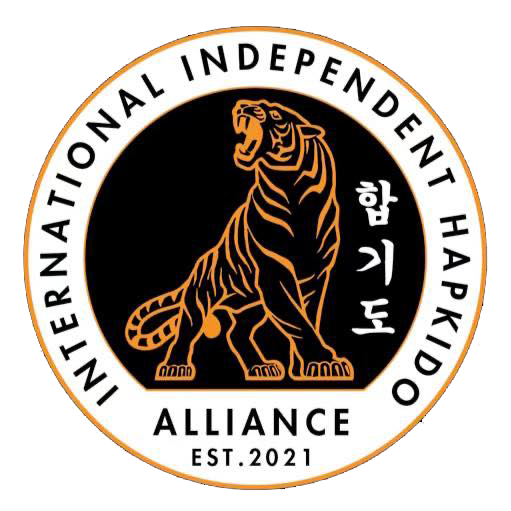
Respect is an Important Leadership Quality for Hapkido Instructors by KJN James R. Hogwood, PhD.
The Power of Respect: Why It’s a Hapkido Instructor’s Most Essential Quality
On the surface, Hapkido may seem like a purely physical art form, a world of throws, joint locks, and self-defense techniques. But delve deeper, and you’ll discover a philosophy woven into its very fabric – a philosophy where respect reigns supreme. And at the heart of this philosophy lies the Hapkido instructor, whose leadership hinges not just on technical expertise, but on the ability to cultivate an atmosphere of respect in their students.

So why is respect such an essential quality for a Hapkido instructor? Five key reasons stand out:
1. Fostering a Safe and Inclusive Environment:
A Hapkido dojang (training hall) is a place where individuals from diverse backgrounds come together to learn and grow. This melting pot requires a leader who commands respect, not through fear, but through genuine empathy and understanding. By respecting each student’s unique needs, abilities, and cultural backgrounds, the instructor creates a safe and inclusive space where everyone feels welcome to participate, regardless of their experience or physical limitations. This respect fosters a sense of belonging and motivates students to push their boundaries, knowing they are valued and supported within the community.
2. Building Trust and Motivation:
The student-instructor relationship in Hapkido is built on trust. Students entrust their bodies and minds to the guidance of their instructor, expecting them to impart knowledge responsibly and prioritize their safety. This trust is nurtured through respect. When an instructor demonstrates respect for their students’ time, effort, and individual learning styles, they cultivate a sense of trust and dedication. This trust, in turn, fuels students’ motivation to learn, practice, and overcome challenges. They feel valued and invested in their own progress, knowing their instructor is genuinely invested in their success.

3. Setting the Tone for Discipline and Etiquette:
Hapkido is deeply rooted in tradition and etiquette. Respect is not just a virtue; it’s a cornerstone of the practice. From bowing rituals to addressing seniors with honorific titles, every interaction within the dojang is imbued with respect. The instructor sets the tone for this etiquette by embodying it themselves. Their respectful conduct towards students, fellow instructors, and even the dojang itself teaches students by example. This fosters a sense of discipline and self-respect, translating into a positive learning environment where students readily embrace the values and traditions of the art.
4. Cultivating Open Communication and Feedback:
Learning and growth thrive in an environment where open communication is encouraged. Respect allows students to feel comfortable asking questions, voicing concerns, and offering feedback without fear of judgment or reprimand. When an instructor demonstrates respect for their students’ opinions and perspectives, they create a space for genuine dialogue and learning. This open communication fosters a collaborative learning environment where students feel empowered to share their experiences and contribute to their own progress and the progress of their peers.
5. Inspiring Leadership Beyond the Dojang:
The impact of a respectful Hapkido instructor extends far beyond the confines of the dojang. By demonstrating respect for their students, colleagues, and the art itself, they set a powerful example that resonates beyond the physical practice. Students witness firsthand the positive effects of respect in action, learning valuable life lessons about empathy, collaboration, and responsible leadership. This empowers them to carry these values into their own lives, becoming agents of positive change in their communities and beyond.
In conclusion, respect isn’t just an admirable quality for a Hapkido instructor; it’s the cornerstone of their leadership. By fostering a safe and inclusive environment, building trust and motivation, setting the tone for discipline and etiquette, cultivating open communication, and inspiring leadership beyond the dojang, instructors who embody respect empower their students to not only excel in the art but also become well-rounded individuals with the potential to make a positive impact on the world. Remember, the true mark of a Hapkido instructor lies not just in their technical prowess, but in their ability to lead with respect, leaving an indelible mark on the lives of their students and the world around them.

About the author: KJN James R. Hogwood, PhD. is a lifelong martial artist and the President of the International Independent Hapkido Alliance. He is the Founder of KumHoKwan (Golden Tiger) Hapkido which is recognized by several of the leading Korean organizations. KJN Hogwood is also the Primary Instructor for the IIHA Instructors Certification Course. For information on hosting KJN Hogwood for a seminar at your school or to schedule private training email him direct at goldentiger68@gmail.com
Be sure to follow us on social media.
- Like our page at https://www.facebook.com/internationalindependenthapkidoalliance
- Subscribe to our channel at https://www.youtube.com/worldhapkidonews
- Join our group at https://www.facebook.com/groups/koreanmartialarts





